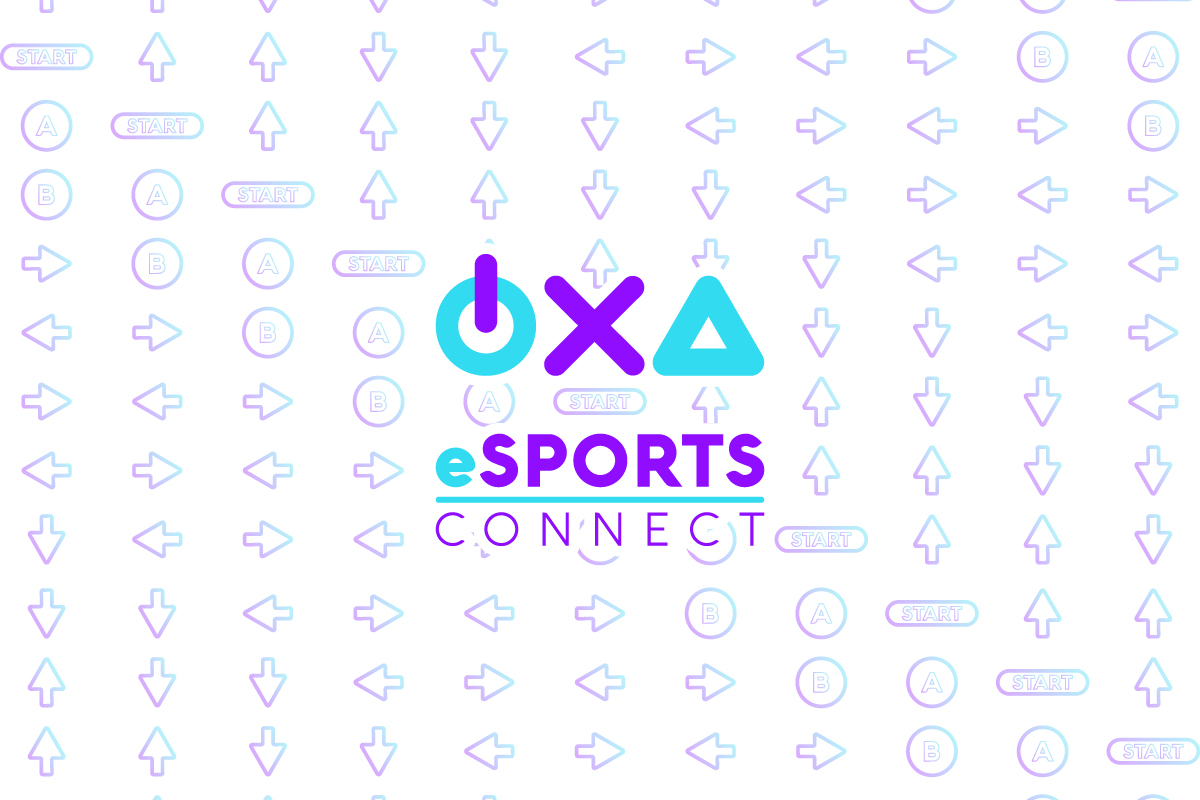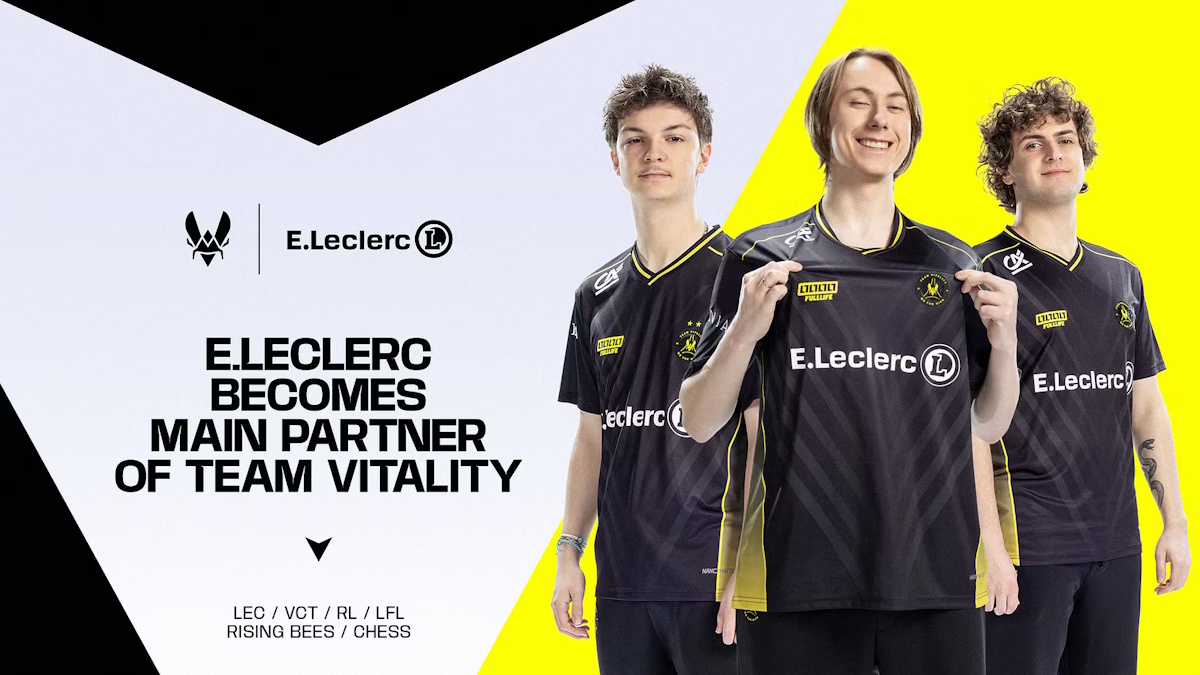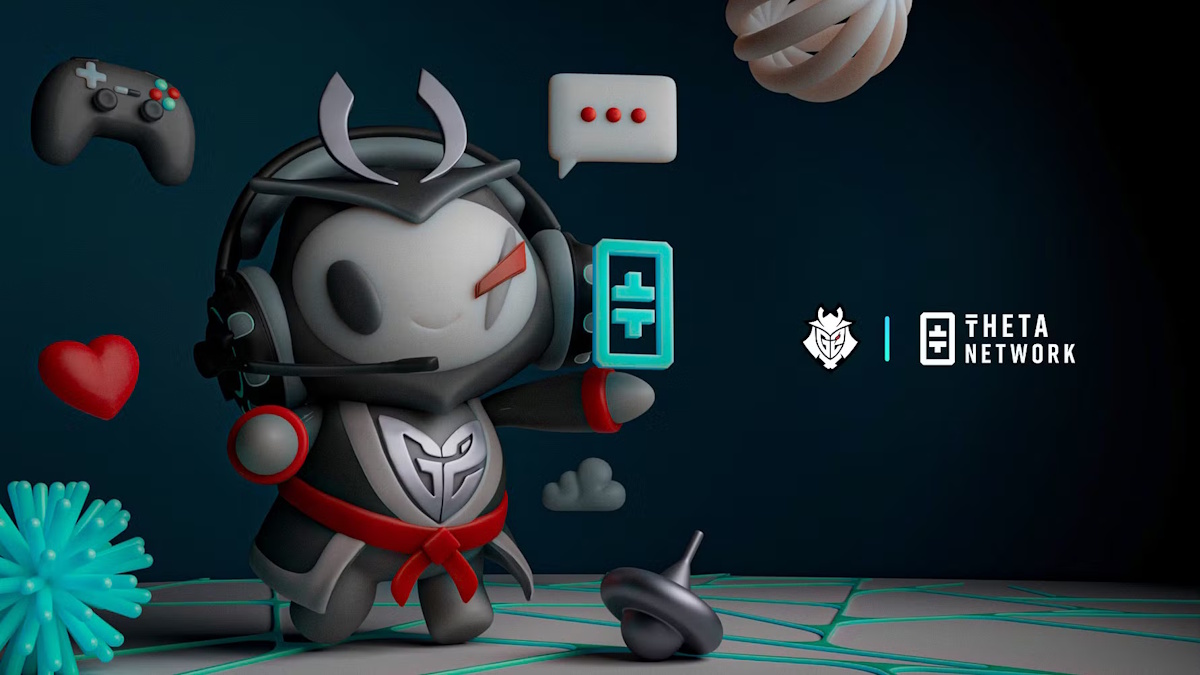eSports
HIPTHER Agency launches eSports Connect, a dedicated eSports news portal

The team at HIPTHER Agency, leading media/news organization and boutique-style conference specialist (digital and in-person), is excited to announce the launch of a new portal.
eSportsConnect.gg will enter into the #hipthers circuit of our content distribution network and focus on sharing the latest news, press releases of the fast-growing eSports industry and beyond.
The #hipthers are active on three continents (Europe, North America, and South America) and cater content for multiple industries such as Entertainment, Gaming and Gambling, Blockchain, Artificial Intelligence, Fintech, Quantum Technology, Legal Cannabis, Health and Lifestyle, VR/AR, eSports and many more.
“We have been covering the eSports industry and overall eSports-related news for well over 4 years and we have now decided that it makes sense to have a dedicated portal. This way we can provide much deeper coverage of this fast-growing industry and of course attract the right audience”, stated Zoltán Tűndik, Co-Founder and Head of Business at Hipther Agency.
Hipther Agency consists of 15 news outlets that cover news from around the world and a portfolio of conferences that cover five continents (North America, Central America, South America, Caribbean, and Europe). Besides the news outlets, the agency owns and maintains HIPTHER TV (on-demand video collection) and WireUp.Zone (online networking platform).
Next month, the team brings you the opportunity to dive into quality discussions in multiple industries during the HIPTHER FESTIVAL XXI between 8-12 November. For more details visit www.hiptherfestival.com
For further marketing inquiries, make sure to reach out to Andrada Marginean (Sales Manager at Hipther Agency).
For media-related inquiries, please contact Alexandru Marginean (Marketing Specialist at Hipther Agency).
To receive constant updates, subscribe here: http://eepurl.com/hfyZxf
Powered by WPeMatico
Brazilian Carnival
Esportes da Sorte transforms Carnival 2026 into a nationwide immersive experience

Leading Brazilian iGaming company Esportes da Sorte has transformed Carnival 2026 into a nationwide immersive experience, activating urban art installations, hydration stations and large‑scale attractions across nine cities in Brazil. As part of its expanded cultural engagement strategy, the brand is serving as an official sponsor in key Carnival locations and delivering experiential initiatives designed for revelers in the streets and major public spaces.
Esportes da Sorte’s nationwide platform builds on its history of investing in popular culture and public events, moving beyond traditional branding to create meaningful on‑site activations that enhance the urban environment and respond to the unique character of each city’s Carnival celebrations.
In Rio de Janeiro, the company’s efforts focus on the street Carnival experience with hydration points, cool zones and shaded areas in high‑traffic celebration routes. São Paulo’s megabloc circuits feature water trucks, hydration stations and on‑site urban support.
In Recife Antigo, one of Carnival’s cultural centers, Esportes da Sorte installed a standout Ferris wheel at Marco Zero, offering panoramic views of the festivities and historic landscape. Urban transformations like video mapping on iconic buildings and aerial installations along Rua Marquês de Olinda further blend public space with the Carnival experience.
Other cities such as Olinda and Salvador also feature tailored activations, including sensory design, refreshment tunnels and themed artistic displays that align with local traditions and festival dynamics.
In addition to physical structures, the initiative includes a robust communications strategy, sensory activations, public well‑being supports and content campaigns that amplify the carnival‑street experience across digital and traditional media.
According to Germana Casal, Production Coordinator at the Esportes Gaming Brasil Group, the goal is to “be present in a meaningful way at the country’s biggest popular celebration,” respecting each city’s identity and delivering initiatives that improve the Carnival experience for participants.
Esportes da Sorte’s Carnival 2026 project builds on the brand’s presence at more than 100 Carnival parties and street blocos in 2025, reinforcing its leadership role in Brazil’s largest cultural event and deepening its connection with urban celebration culture nationwide.
The post Esportes da Sorte transforms Carnival 2026 into a nationwide immersive experience appeared first on Eastern European Gaming | Global iGaming & Tech Intelligence Hub.
chess esports
Team Vitality announces E.Leclerc as new Main Partner

Team Vitality, one of France’s leading esports organizations, has announced a strategic new partnership with French retail giant E.Leclerc, naming the supermarket chain as the club’s Main Partner for 2026.
Under the agreement, E.Leclerc’s logo will feature prominently on Team Vitality’s international team jerseys, including rosters for League of Legends (LEC and LFL), Valorant (VCT EMEA), Rocket League, Rising Bees and Chess.
Shared Values and Fan Initiatives
The partnership aims to promote accessibility, wellness, and nutrition within the esports community, while bringing gaming culture into E.Leclerc retail spaces through immersive experiences, tournaments and activations designed to engage fans across France.
Team Vitality’s holistic wellbeing program, KARE, which supports performance, nutrition and mental health, aligns closely with E.Leclerc’s focus on responsible lifestyle initiatives. Together, they plan to champion inclusivity, provide unique gaming opportunities, and celebrate esports culture in both digital and physical environments.
With a global audience exceeding 10 million followers, Team Vitality’s influence in competitive gaming makes this partnership a landmark moment for both brands. E.Leclerc’s commitment to youth engagement and cultural connection positions the retailer as a significant non‑endemic supporter of the growing esports ecosystem.
Nicolas Maurer, CEO and Co‑Founder of Team Vitality, described the alliance as a historic milestone that will broaden esports’ reach across everyday life in France and reinforce its cultural legitimacy.
The post Team Vitality announces E.Leclerc as new Main Partner appeared first on Eastern European Gaming | Global iGaming & Tech Intelligence Hub.
AI chatbot esports
G2 Esports and Theta Labs Launch AI Agent Sami

G2 Esports has partnered with Theta Labs to launch “Sami,” a next-generation AI agent designed to enhance fan engagement across multiple competitive esports titles.
The AI-powered assistant will provide G2’s global fanbase with instant access to match schedules, player stats, team rosters, tournament standings, and real-time competitive updates. Sami supports major titles including League of Legends, Counter-Strike 2, VALORANT, Tom Clancy’s Rainbow Six Siege, and Call of Duty.
Accessible via the official G2 website and Discord starting February 17, Sami is built to deliver accurate, always-on responses to fan queries in natural language. From tournament updates to player performance metrics and G2-specific trivia, the AI agent reflects the organization’s unique brand voice and competitive culture.
AI-Powered Fan Engagement at Scale
Sami is trained and deployed using Theta EdgeCloud’s hybrid cloud-edge infrastructure, which integrates over 30,000 distributed edge nodes with cloud services from Google Cloud and Amazon Web Services. The system delivers approximately 80 PetaFLOPS of GPU compute power, enabling real-time processing and analysis at significantly reduced costs compared to traditional centralized cloud platforms.
The AI infrastructure dynamically assigns workloads to high-performance GPUs, including NVIDIA A100 and H100 cloud GPUs, as well as RTX 3090 and 4090 desktop GPUs, optimizing performance and cost efficiency. This decentralized architecture allows G2 to scale fan engagement globally while maintaining low latency and high reliability.
Strengthening Esports AI Innovation
Theta Labs has rapidly expanded its presence in the esports industry, powering AI-driven fan experiences for organizations such as Cloud9, FlyQuest, Evil Geniuses, NRG, Gen.G, Dignitas, 100 Thieves, Method, and Team Heretics.
According to Mitch Liu, CEO of Theta Labs, esports fans increasingly demand instant access to team data and competitive updates. AI agents like Sami enable organizations to provide 24/7 automated engagement while maintaining a unique community personality.
Sabrina Ratih, COO of G2 Esports, emphasized that Sami is more than a standard chatbot. Built to reflect G2’s playful and competitive tone, the AI assistant combines advanced machine learning with brand-driven communication to deliver both entertainment and functionality.
The Future of AI in Esports
The launch of Sami positions G2 Esports at the forefront of AI-driven fan engagement in competitive gaming. By leveraging decentralized GPU infrastructure and blockchain-powered cloud computing, the partnership with Theta Labs signals a broader industry shift toward scalable, cost-efficient AI solutions for esports organizations.
As AI integration becomes a competitive differentiator in esports, solutions like Sami are expected to redefine how teams interact with their global communities in real time.
The post G2 Esports and Theta Labs Launch AI Agent Sami appeared first on Eastern European Gaming | Global iGaming & Tech Intelligence Hub.
-

 Blueprint Gaming6 days ago
Blueprint Gaming6 days agoBlueprint Gaming unleashes Frankenstein’s Fortune blending dynamic modifiers with multi-path bonus offering
-

 Compliance Updates7 days ago
Compliance Updates7 days agoHow to Apply for a Finnish iGaming License: Gaming in Finland Webinar on Application Steps and Technical Standards
-

 Big Daddy Gaming7 days ago
Big Daddy Gaming7 days agoBig Daddy Gaming® Expands European Footprint After MGA Licence Approval
-

 Latest News4 days ago
Latest News4 days agoGGBET UA hosts Media Game – an open FC Dynamo Kyiv training session with journalists from sports publications
-

 Compliance Updates6 days ago
Compliance Updates6 days agoMGA Publishes Results of Thematic Review on Self-exclusion Practices in Online Gaming Sector
-

 Amusnet6 days ago
Amusnet6 days agoAmusnet Unveils Casino Engineering and Technology Milestones Achieved in 2025
-

 Brais Pena Chief Strategy Officer at Easygo7 days ago
Brais Pena Chief Strategy Officer at Easygo7 days agoStake Goes Live in Denmark Following Five-Year Licence Approval
-

 Dan Brown6 days ago
Dan Brown6 days agoGames Global and Foxium return to the Colosseum in Rome Fight for Gold the Tiger’s Rage™



















